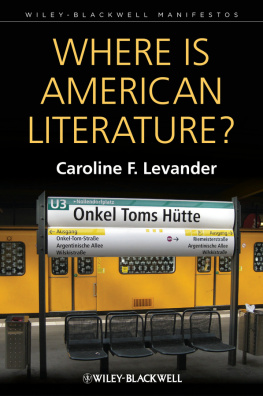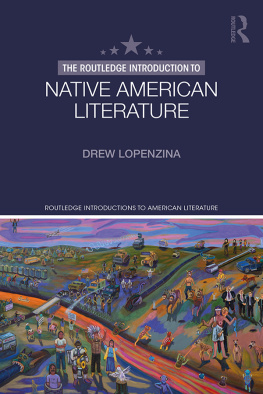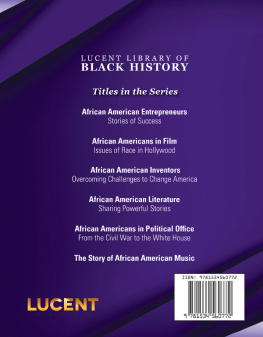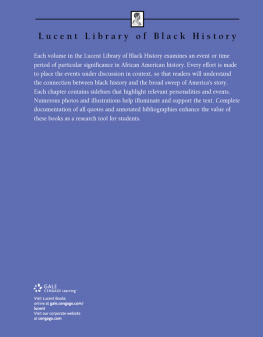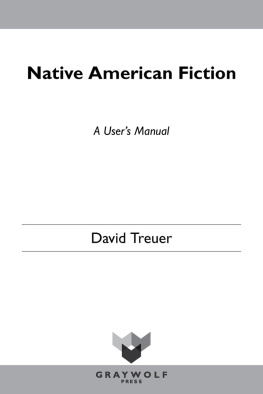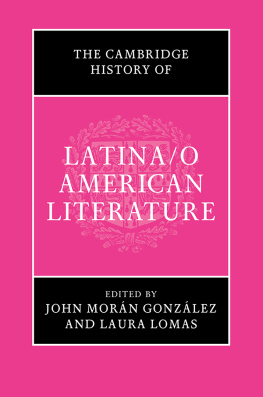
Table of Contents
Wiley-Blackwell Manifestos
In this new series major critics make timely interventions to address important concepts and subjects, including topics as diverse as, for example: Culture, Race, Religion, History, Society, Geography, Literature, Literary Theory, Shakespeare, Cinema, and Modernism. Written accessibly and with verve and spirit, these books follow no uniform prescription but set out to engage and challenge the broadest range of readers, from undergraduates to postgraduates, university teachers and general readers all those, in short, interested in ongoing debates and controversies in the humanities and social sciences.
Already Published
| The Idea of Culture | Terry Eagleton |
| The Future of Christianity | Alister E. McGrath |
| Reading After Theory | Valentine Cunningham |
| 21st-Century Modernism | Marjorie Perloff |
| The Future of Theory | Jean-Michel Rabat |
| True Religion | Graham Ward |
| Inventing Popular Culture | John Storey |
| Myths for the Masses | Hanno Hardt |
| The Future of War | Christopher Coker |
| The Rhetoric of RHETORIC | Wayne C. Booth |
| When Faiths Collide | Martin E. Marty |
| The Future of Environmental Criticism | Lawrence Buell |
| The Idea of Latin America | Walter D. Mignolo |
| The Future of Society | William Outhwaite |
| Provoking Democracy | Caroline Levine |
| Rescuing the Bible | Roland Boer |
| Our Victorian Education | Dinah Birch |
| The Idea of English Ethnicity | Robert Young |
| Living with Theory | Vincent B. Leitch |
| Uses of Literature | Rita Felski |
| Religion and the Human Future | David E. Klemm and William Schweiker |
| The State of the Novel | Dominic Head |
| In Defense of Reading | Daniel R. Schwarz |
| Why Victorian Literature Still Matters | Philip Davis |
| The Savage Text | Adrian Thatcher |
| The Myth of Popular Culture | Perry Meisel |
| Phenomenal Shakespeare | Bruce R. Smith |
| Why Politics Cant Be Freed From Religion | Ivan Strenski |
| What Cinema is! | Andrew Dudley |
| The Future of Christian Theology | David F. Ford |
| A Future for Criticism | Catherine Belsey |
| After the Fall | Richard Gray |
| After Globalization | Eric Cazdyn and Imre Szeman |
| Art Is Not What You Think It Is | Donald Preziosi and Claire Farago |
| The Global Future of English Studies | James F. English |
| The Future of Jewish Theology | Steven Kepnes |
| Where is American Literature? | Caroline F. Levander |

This edition first published 2013
2013 Caroline F. Levander
Blackwell Publishing was acquired by John Wiley & Sons in February 2007. Blackwells publishing program has been merged with Wileys global Scientific, Technical, and Medical business to form Wiley-Blackwell.
Registered Office
John Wiley & Sons, Ltd., The Atrium, Southern Gate, Chichester, West Sussex, PO19 8SQ, UK
Editorial Offices
350 Main Street, Malden, MA 02148-5020, USA
9600 Garsington Road, Oxford, OX4 2DQ, UK
The Atrium, Southern Gate, Chichester, West Sussex, PO19 8SQ, UK
For details of our global editorial offices, for customer services, and for information about how to apply for permission to reuse the copyright material in this book please see our website at www.wiley.com/wiley-blackwell.
The right of Caroline F. Levander to be identified as the author of this work has been asserted in accordance with the UK Copyright, Designs and Patents Act 1988.
All rights reserved. No part of this publication may be reproduced, stored in a retrieval system, or transmitted, in any form or by any means, electronic, mechanical, photocopying, recording or otherwise, except as permitted by the UK Copyright, Designs and Patents Act 1988, without the prior permission of the publisher.
Wiley also publishes its books in a variety of electronic formats. Some content that appears in print may not be available in electronic books.
Designations used by companies to distinguish their products are often claimed as trademarks. All brand names and product names used in this book are trade names, service marks, trademarks or registered trademarks of their respective owners. The publisher is not associated with any product or vendor mentioned in this book. This publication is designed to provide accurate and authoritative information in regard to the subject matter covered. It is sold on the understanding that the publisher is not engaged in rendering professional services. If professional advice or other expert assistance is required, the services of a competent professional should be sought.
A Library of Congress Cataloguing-in-Publication Data is available upon request.
A catalogue record for this book is available from the British Library.
Cover image: Underground station, Berlin. Photo Alan R. Levander
Cover design by Nicki Averill
Acknowledgments
In order to answer the question posed by this books title, I went many places and was helped by many people. I particularly thank the following institutions and individuals for inviting me to share the ideas driving this book in lectures, seminars, and, most importantly, conversations: the Swedish Research Council and Uppsala University; Yale University; Harvard University; the University of Southern California; the University of California, Irvine; the John F. Kennedy Institute for North America Studies at the Freie Universitt, Berlin; Karlstad University, Sweden; the Humanities Center at University of Buffalo; the Institute for Philosophical Research, Germany; Indiana University; the University of Vermont; the University of South Carolina; the Huntington Library, Pasadena California; the Humanities League and Academia Sinica, Taipei, Taiwan; Brown University; and the University of Illinois, Champagn-Urbana.
To those who kept asking me where is American literature anyway? and helped me change my answer from in my mind, to on the page, and, finally, to at the press I am grateful beyond words. One answer to the books driving question has consistently been in my friends inboxes, and I thank Rachel Adams, Carrie Bramen, Anna Brickhouse, Sid Burrus, Russ Castronovo, Deborah Cohn, Cathy Davidson, Tim Dean, Susan Gillman, Melissa Gniadek, Matthew Guterl, Rodrigo Lazo, Robert Levine, Allen Matusow, Walter Mignolo, Anthony Pinn, John Carlos Rowe, Shirley Samuels, Jeffrey Schnapp, and Nicole Waligora-Davis for reading portions, and in a couple of cases, all of the book and giving great feedback every step of the way. Grateful thanks to Alan Levander for such a great cover image.
For me, one profoundly important answer to the books titular question of where American literature can be found has been at my home institution with the colleagues, students, and faculty visitors who have convened in seminar rooms at Rice to talk about the ideas driving this manuscript. I am grateful to Rice for supporting this venture and to the graduate students who have engaged it with energy and, at times, useful incredulity, particularly Karen Rosenthall, AnaMaria Seglie, and Abby Goode. Finally, I owe hearty thanks to Meredith Allison for her late-inning formatting skills and general proof-reading savvy.
Next page
